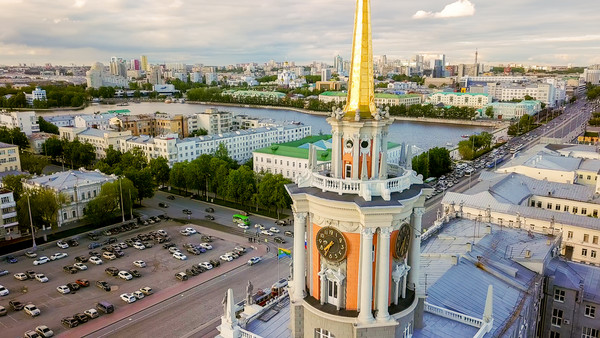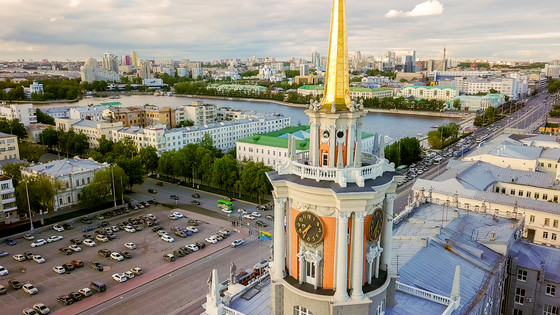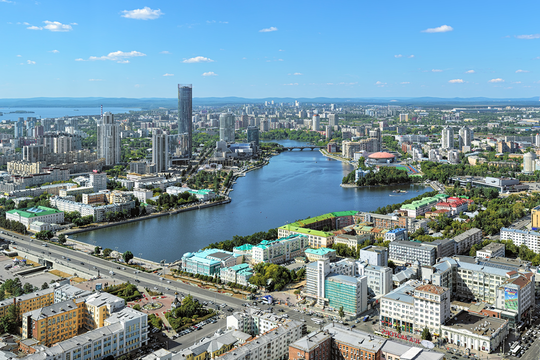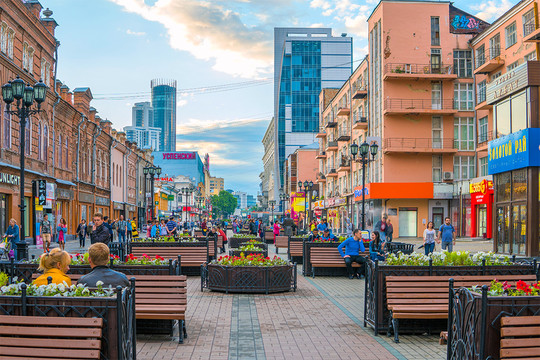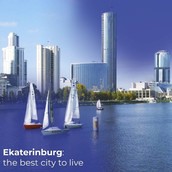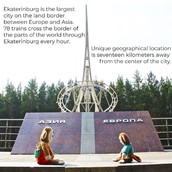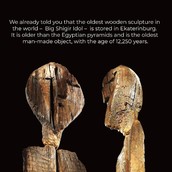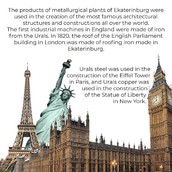- Admission & Arrival 2024
- Prospective students
- Current students
- Open Doors Olympiad
- Alumni
- Faculty and staff
- Career
- Career Success Stories
- Nurtai Abykaev (Kazakhstan)
- Ephraim Bonah Agyekum (Ghana)
- Jiang Jing (China)
- Nibin Joy Muthipeedika (India)
- Islam Md Monirul (Bangladesh)
- Aboushanab Saied Abdellatif Saied (Egypt)
- Aleksandr Šukalo (Republic of Srpska, Bosnia and Herzegovina)
- Tomás Joel Muñoz (Argentina)
- For Students and Graduates
- Online Job Fair
- ProfCareer Testing
- Tips from Successful Distance Workers about Organizing Work from Home
- Useful Tips to Effective Resume
- Partners
- Media
Life in Ekaterinburg
Ekaterinburg is the third largest and one of the most dynamic cities in Russia. It is located on the eastern slopes of the Ural Mountains (2 hours flight east from Moscow) which represents a natural boundary between Europe and Asia. Ekaterinburg is one of the 15 millionaire cities in Russia. Population currently stands at 1,493,600.
Being a city of "borderless opportunities" (according to its official motto), Ekaterinburg is the administrative center of the Sverdlovsk Region, which ranks the 2nd according to Forbes ranking of Russian regions with the best business environments.
It is a city with a well-developed infrastructure for trade, tourism, hotel business, culture and entertainment, and also a center of science and education. The city of Ekaterinburg is one of the major business centers in Russia. Its financial and banking institutions play an important role in the Russian economy, making a substantial contribution to the development of cooperation with foreign countries.
More and more foreign companies successfully operate branches and joint ventures here. Ekaterinburg is considered to be the economic and cultural capital of the Urals, and one of the most promising cities in Russia for foreign investment and trade. The unique geographical location of the city, on the border between Europe and Asia, makes Ekaterinburg the perfect place for establishing effective cooperation between East and West.
Ekaterinburg is a modern city with a developed infrastructure. The city has 23 large shopping centers (total area - 1,497,705 square meters), many cafes and restaurants, several parks. There are also 36 medical institutions in Ekaterinburg, one of which is the UrFU Medical Unit.
All types of transport are present in Ekaterinburg: buses, trolley buses, trams and the subway.
The city has a train station and an airport. Ekaterinburg is an important transportation hub: over 30 domestic and international airlines connect Koltsovo airport with more than 80 cities worldwide. The city also has a local airline, Ural Airlines, which operates flights on 120 routes.
Leisure Time in Ekaterinburg
What is the average cost of living in Ekaterinburg?
On average, a student needs 300-400 dollars a month to live in Russia, and 3000-4000 dollars for the academic year (September-June). At first it is better to have money for additional expenses, such as medical insurance, furnishing an apartment or dormitory (buying dishes, bedding and detergents) and buying some textbooks.
According to official data, the minimum set of products (including bread, pasta, meat, fish, vegetables, fruit, milk, sugar) in Russia costs 4,209 rubles (about 45 dollars) per month. The cost may vary depending on the region and where you buy your groceries (small store, supermarket, market).
Interesting Facts about Ekaterinburg
Ekaterinburg Motion Timelapse
Created / Updated: 30 April 2014 / 15 January 2024



